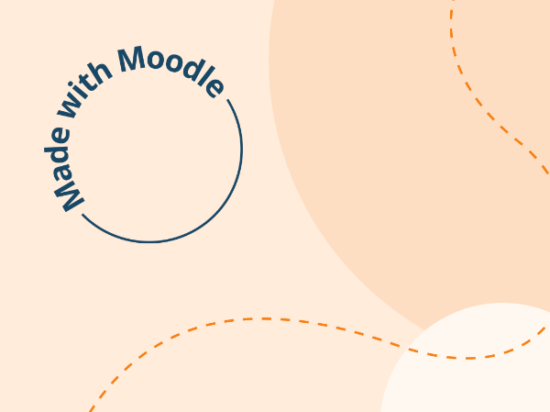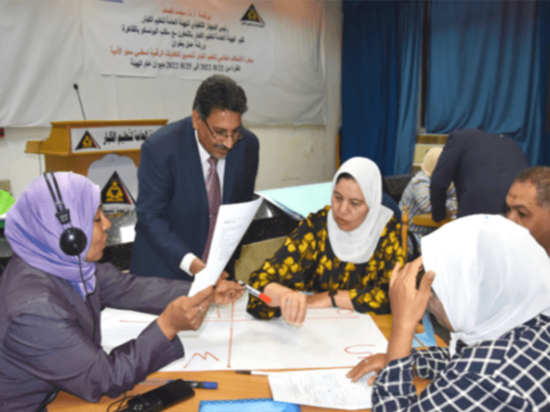Moodle is used in every country in the world. This achievement not only equates to millions of global users but also a need for Moodle to be translated into a multitude of languages, to make it accessible for our large community.
Available in English by default, Moodle relies on the contribution of its volunteer language packs maintainers to make it available in many languages. Combined, these volunteers aim to translate over 23,000 phrases (or strings) for each language.
The support of our volunteer language packs maintainers is essential to assist the teaching and learning of people using Moodle, across the globe.
Moodle HQ speaks to Koen Roggemans, Moodle’s volunteer Translation Coordinator, based in Belgium, about the importance of translating Moodle into many languages.
Moodle HQ: Thank you, Koen, for taking the time to talk to us. Would you be able to start by explaining to us what your role, as the Translation Coordinator for Moodle, entails?
Koen Roggemans: Back in 2004, Martin asked me to become the Moodle Translation Coordinator. The role would include; setting up new languages on the Moodle translation site, helping new translators get started and if necessary, transferring responsibility for a translation (known as a ‘language pack’) to a new translator. I agreed, and have been doing the job ever since!
Moodle is currently being translated into over 100 languages. Some language packs are complete, others have just started, and some need new translators.
I am also the language pack maintainer for Dutch (my native language, and one of the three official languages in Belgium). Like all language pack maintainers, I work as a volunteer.
I am also an IT manager and teacher at a school for students aged 12-18. I naturally use Moodle with my classes and I encourage other teachers to use it too.
Moodle HQ: What is the importance, from your perspective as a language pack maintainer and Translation Coordinator, of translating Moodle?
Koen Roggemans: Moodle is used all over the world, for all age groups, in languages other than English. It’s therefore important that Moodle is available in the learner’s own language. Having Moodle available in other languages also mean learners can focus solely on their learning.
Language pack contributors play an important role in making Moodle more accessible for educators and learners around the globe.
To date (correct at time of publication), a total of 1,231,693 strings have been translated by community members and submitted into AMOS, the translation tool that we use for Moodle.
This is an amazing feat and one which all volunteers should be proud of!
Moodle HQ: So, who can contribute to a translation for Moodle?
Koen Roggemans: Anyone with a fair understanding of the English language, in addition to their native language, is welcome to contribute to a translation. Even fixing one spelling mistake is a worthwhile contribution.
If your native language is English, or you have high-level English skills, you can also contribute to spelling mistake fixes and suggested improvements to the English language pack. For details, please see the guide improving English language strings.
Moodle HQ: If someone is interested in contributing to Moodle translations, what would you say to them why they should get involved? What will contributors get out of the experience?
Koen Roggemans: If you translate Moodle, or make improvements to an existing translation, it’s no extra work to share your contribution with the community. Your translation will then be available to everyone who wants to use Moodle in your language.
Translating open-source software such as Moodle works exactly like the development of the code of open source software: every user can be a contributor and improve the product. If you see a problem in the translation, report it. If you find an area where translation is missing, you can contribute some time and improve the product for your own needs and let others benefit from it too. Just like you benefit from the work of contributors before you.
The great thing about being a member of the Moodle community is that you can collaborate and improve it! More users result in more contributors and better translations/ better software.
At Moodle, we want to make it available to everyone globally and provide everyone speaking whatever language with the opportunity to help translate the interface. Speakers of minority languages can translate Moodle and use it with their students.
Languages are a valuable cultural heritage and an important component of the identity of a population. Providing Moodle in a minority language helps encourage its use.
The same goes for languages spoken in regions of the world with smaller IT budgets or resources. Moodle can be translated into any language for which somebody volunteers.
Moodle translation contributors and language pack maintainers are listed in the translation credits and where possible, on other relevant Moodle communications channels.
Language pack maintainers are also awarded badges in recognition of their support.
Moodle HQ: So, now that a potential contributor knows why or what are the reasons to assist with translating, what’s the next step?
Koen Roggemans: Please see the contributing a translation guide for details of how you can help translate Moodle. The Moodle translation site enables translators to work collaboratively on language packs using a special Moodle translation tool called AMOS.
After submitting a translation, your contribution is reviewed by the maintainer of your language pack, approved and included in the language pack. Your contribution will then be available for everyone who uses Moodle in your language.
If your language doesn’t have a maintainer, please see our guide maintaining a language pack and consider volunteering for the job!
If you just want to report a spelling mistake, you can simply contact the language pack maintainer, as listed in the translation credits.
—–
Thank you, Koen, for taking the time to talk to Moodle HQ and explain to us the importance of Moodle translations and steps on how to contribute it.
Finally, a big thank you to everyone who has contributed a translation and all our language pack maintainers. Your ongoing support helps ensure that Moodle is accessible for educators and learners all over the world.


